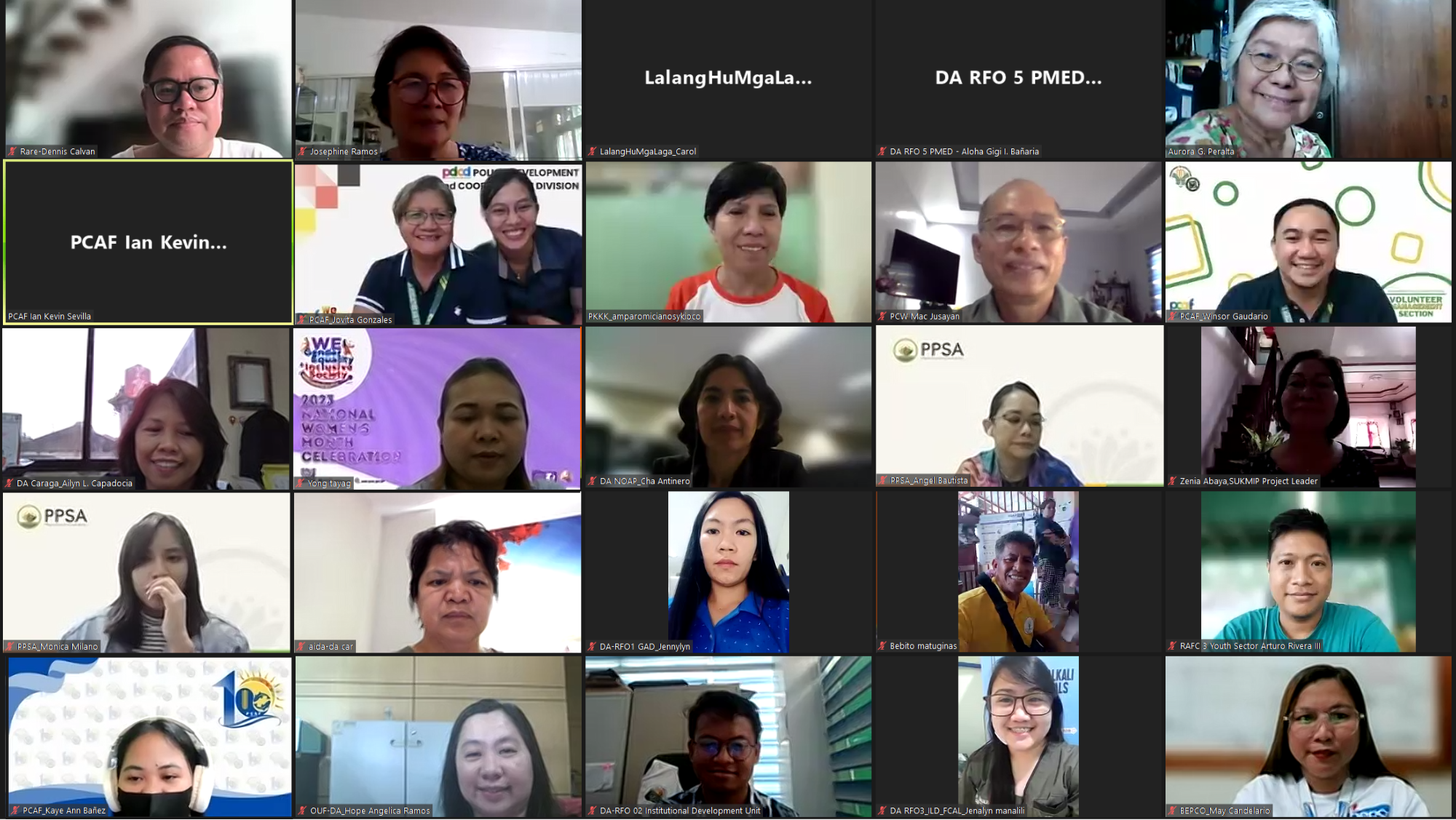
The Department of Agriculture-National Organic Agriculture Program (DA-NOAP) and DA-Climate Resilient Agriculture Office (DA-CRAO) presented their respective gender and development (GAD) initiatives during the NSC on Gender Equality and Social Inclusion (GESI) fourth quarter meeting on December 7, 2023.
Under the DA-NOAP, Project Development Support Division Chief Eliza Antinero discussed four initiatives—the Participatory Guarantee System (PGS), the Organic Agriculture Livelihood Project, the Organic Agriculture Youth Internship Program (OAYIP), and the Regional Organic Agriculture Congress.
The PGS refers to the local quality assurance system, created by organic agriculture practitioners, that aims to reduce the cost of maintaining organic certification and preserve the integrity of organic products in the market. One of the six key elements of PGS Groups is horizontality, which ensures that all relevant stakeholders, regardless of gender, have equal rights, responsibility, and accountability in maintaining organic integrity.
Meanwhile, the OAYIP is a highly specialized scholarship program that guarantees social inclusivity among youth by engaging them in a 21-month internship to instill an appreciation for organic agriculture. During the meeting, Antinero reported that 144 interns are now enrolled in the OAYIP.
On the other hand, Sophia Tabora of DA-CRAO presented the Adaptation and Mitigation Initiative in Agriculture (AMIA) Program’s GAD efforts. One of which is the conduct of a gender analysis in Western Visayas to identify and address gender-specific barriers, roles, and opportunities faced by both men and women in climate-resilient communities.
Aside from providing gender-responsive interventions, Tabora also highlighted the full representation of women in AMIA Villages established in the Bicol Region. In the case of the Cagbunga Riverside Farmers Organization, it is composed of 44 men and 34 women farmer-cooperators engaged in CRA interventions such as: Rice-Duck Integration, UVS Plastic as Rice Dryer, Taro Production, Aquaculture, and Climate Information Services.
During the discussion, Philippine Commission on Women Sectoral Coordination Division Chief Macario Jusayan emphasized the importance of value chain analysis in the successful implementation of interventions.
“Sana yung ating interventions for women economic empowerment may identification muna ang key implementing agencies kung ano talaga yung mga pangangailangan nila. Kaya mahalaga yung value chain analysis,” Jusayan said.
He also stressed the significance of proper information dissemination about the concerned agencies and their functions to effectively promote and cascade their respective programs and projects. | Joy Camille Luza











